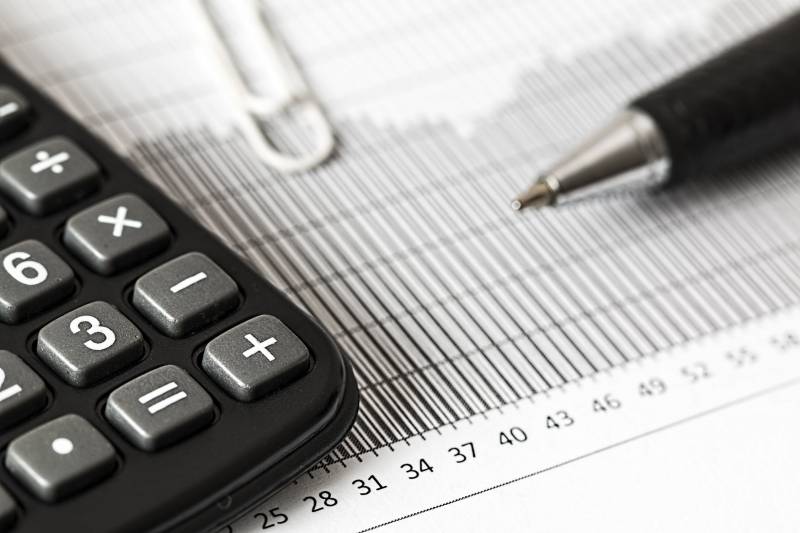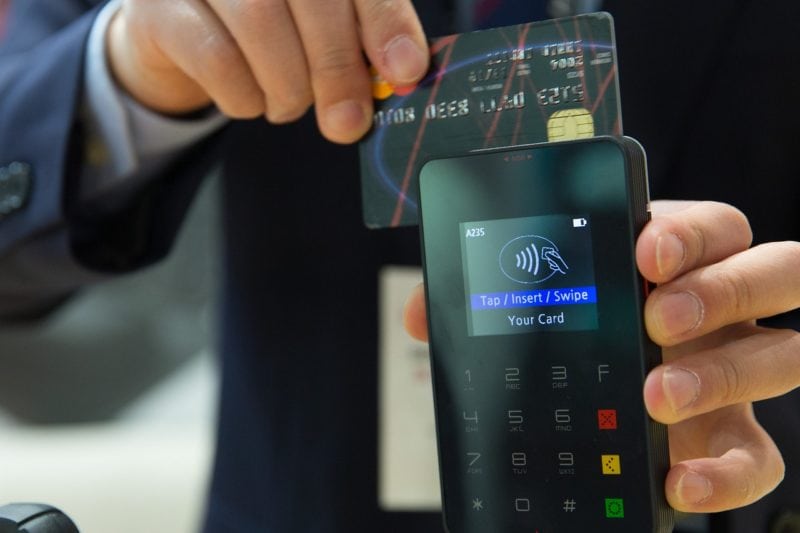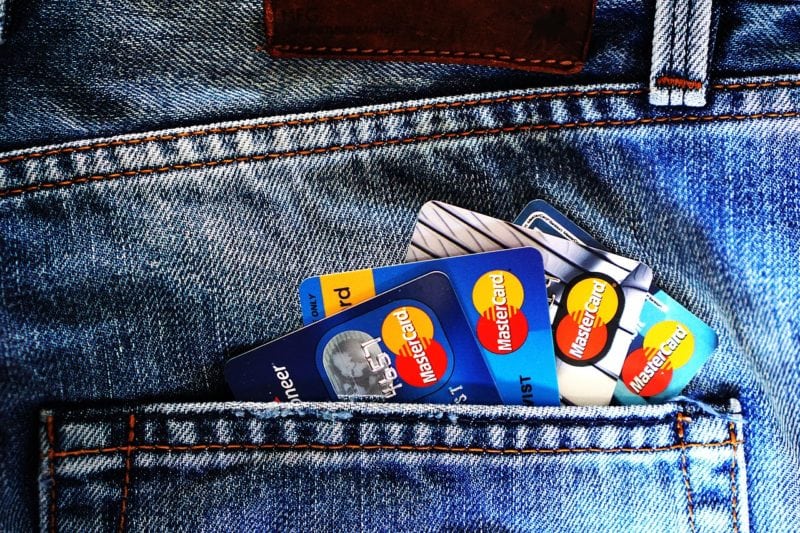A credit score is a number named after the Fair Isaac Corporation that represents how responsible you are with debt. This score, also known as a FICO score, is usually based on reports from the three major credit bureaus, which we'll cover a little later. Keep in mind that “FICO” is often pronounced “fako.” Don't waste time looking for your “fako scores” online. You're looking for your FICO!
This is different from your Transrisk score, which is a Transunion product that most credit card companies won't look at. In fact, the point of a Transrisk credit score is to educate you, the consumer, about your approximate credit score. Think of it as your Transunion credit score. Don't make the mistake of valuing a Transunion score, which only references one credit reporting agency's information, above the FICO. Even your VantageScore, which is a similar product created by the three credit reporting agencies to compete with the FICO, is a better option. You may also hear that product referred to as your Credit Karma score since this is what Credit Karma uses to monitor your credit.

Debt includes anything that you've bought on credit or borrowed, such as purchases that you put on your credit card, student loans, and mortgages. If you pay down your debt regularly, then you will have a good credit score. In the case of credit cards, you'll need to carry a balance of less than 30% of your credit line.
Why Do You Need A Good Score?
Credit scores start at 350 and can be as high as 850. A score of 700 is considered good enough for most loans. A higher score can net you better credit cards and a higher credit limit. If your score is lower than 700, you may have more trouble securing new credit. This number can even impact your employment. These days, the credit history of job candidates is often part of the hiring process.
Who Keeps Track Of Your Credit Score?
There are three major credit bureaus whose job it is to track your credit. These are Equifax, Transunion, and Experian. They all have access to your credit history, and they each use it to track your credit history and produce a report. Those usually don't match exactly because the credit bureaus interpret your credit history in slightly different ways.
Transunion credit reporting differs from Equifax, which differs from Experian. However, they all use similar ways of determining your FICO score, most of which depend on your credit utilization and payment history. If you have late payments, these companies will know about it. Credit card issuers and loan officers usually check each one. It's a fast way to determine that you're likely to pay back a loan based on your payment history.
It's important to monitor your credit because if it changes rapidly, you could be the victim of identity theft. However, credit inquiries can actually damage your score! Since checking your credit can affect your credit, it's better not to go through the reporting agencies to get your FICO more than once a year. Instead, use a credit monitoring service.

You might use a credit monitoring service if you want to improve your credit or make sure that you maintain good credit. As you accumulate auto loans, or if you have to deal with a longstanding student loan, it becomes easier and easier to forget a payment. That's why it can be good to keep track. Credit monitoring services use a soft inquiry to figure out your credit score and history without damaging it. myFICO and Credit Karma are two of the biggest names in the game. Read on to find out more.
myFICO
Services
There are two different types of products that myFICO offers. The first, and ultimately the least expensive, is the one-time credit report. myFICO can retrieve your credit report from Experian and your FICO scores for $19.95. If you want your report from all three of the major credit bureaus, this one-time check will cost you $59.85.
The second type of product that myFICO offers is ongoing monitoring. This is a subscription plan that sends you information about your credit report every month, and the first and second most basic plans are essentially the same as the ones we listed above. However, if you want ongoing three-bureau monitoring, this service will only cost you $29.95 per month. You'll get updates about your credit report and score every quarter. Interestingly, if you want to use myFICO's most basic ongoing plan, you can get monthly updates, but only for your Experian report. There's also a premier version that monitors your credit at all three bureaus and sends you monthly updates.
Extras
Each of these services comes with identity theft restoration, credit report change alerts, a simulator that can show you how a prospective loan might impact your credit score and up to $1 million in identity theft insurance. There are a rate calculator and an analysis tool that give you some insight into how your activity is impacting not only your current credit score but your ability to get a good interest rate on future loans.

Monitoring your FICO score
Unlike Credit Karma, which we'll discuss in a minute, myFICO monitors your actual FICO score. Some lenders primarily check your FICO. Others look for your VantageScore. Both are similar, but it's worth your while to ask your lender which number they'll be checking. FICO is the older product, so many established institutions rely on it. If you need to check your FICO, myFICO might be a good service to choose.
Pricing
There's no myFICO service that you can get for free. That's an important fact, considering that you can get a free credit report once a year without damaging your score. In fact, myFICO's credit education material discusses annualcreditreport.com, where you can get one free comprehensive credit report every year. (It's worth noting that you do not get your FICO score with this report.) myFICO's financial fine print is also interesting. Once you sign up for the ongoing monitoring products, these services will automatically renew themselves using the credit card number that you entered to pay for the original product. This can get quite pricey. One year of myFICO's most basic plan would cost about $240.
The Danger Of Auto-Renew
It's also quite easy to accidentally sign up for an auto-renewing subscription. The pages for the one-time and ongoing plans look very much alike cosmetically, and the services are almost exactly the same. In fact, the three-bureau monitoring service initially appears to be cheaper than the one-time credit check! That's only true for the first two months, of course. After that, the lowest cost for three-bureau monitoring is around $360 per year.
While it should be possible to cancel your subscription, there's always danger with this kind of pricing model, even if you purposely sign up for ongoing monitoring. It's not hard to forget this kind of repeating cost from month to month. Then again, it may be worth it to you. After all, credit monitoring is a valuable service, and myFICO brings a lot to the table.

Credit Karma
Services
Immediately upon looking at the Credit Karma website, it becomes clear why this is a popular service. It's very sleek and more visually appealing than myFICO, and it may be a little easier to use for some people. That doesn't necessarily mean that it provides better services, though.
In fact, Credit Karma does mostly what myFICO does: it gives recommendations on how to use your credit well, alerts you when there's been a change in your credit, and shows you why your score is what it is. There are some major differences that every user should know before they sign up. Credit Karma does not appear to offer identity protection or insurance like myFICO does, although it does monitor for identity fraud. If your social security number has been compromised, then the insurance that myFICO offers may be a service that's worth your money.
Check Your Score Whenever You Want
On the other hand, Credit Karma lets you check your credit score as often as you'd like. myFICO sends you, at most, one update a month. If you feel that your score is changing quickly, or if you're in the process of making a big purchase and want up-to-the-minute updates on how your score is doing, then Credit Karma may be better for your immediate needs.
Better yet – at least, from our perspective here at The Budget Diet – Credit Karma provides all of its services for free. At least, it provides services free of charge, as in you'll never have to enter your credit card and directly pay for this service. However, every business has expenses, and this one is no different.
If you open a Credit Karma account, you'll notice that it's typical of many “free” online financial services in that it advertises for credit cards. In fact, if your credit is in fairly good shape, Credit Karma will probably use its “My Recommendations” feature to recommend that you get more credit cards! Obviously, we don't advise plunging into a new credit line because some impersonal web page told you to, especially if it does so under the guise of giving you sound financial advice. Remember, Credit Karma doesn't know your monthly income and doesn't really care if your credit tanks. Its job is to show you your information. It's the credit card companies that keep the lights on.

Using the VantageScore
Without asking for any money at all, Credit Karma gets your credit score from two of the three major credit bureaus, Transunion and Equifax. They do this using VantageScore 3.0. A VantageScore credit score is a competitor to FICO. (Remember, these are scores used, determined, and provided to you by private companies!) If you want to Google VantageScore, remember that it's one word – there's no such thing as a “vantage score.” If not, check out NerdWallet's rundown of how a VantageScore is different from a FICO.
Credit Karma Tax Services
Credit Karma is also in the tax game, offering audit protection and free filing for both federal and state taxes. In fact, it appears that filing taxes is completely free through Credit Karma. However, this service is also quite basic. PCMag points out that it doesn't provide multiple important forms.
The Costs
As Money Under 30 points out, Credit Karma uses your financial data to target advertising specifically at you. If you have excellent credit, these credit karma offers will be ads for top loans and credit cards, regardless of whether you can afford them on your income. They'll appear on almost every page, too. Even your account overview will try to sell you new credit lines. Credit Karma is not determining your debt-to-income ratio when it delivers these offers. It's just basing them on your credit. If you've never had a credit line or a job, it'll still offer you high-end loans, even if you're completely unable to pay them back.
There's a mental cost to using a service like this. Even if you don't immediately break down and start clicking ads, it's wearing to keep ignoring temptations splattered all over your screen. If you're trying to monitor your credit score because you've had credit trouble, or if you already can't pay your existing annual fee, this may not be the best place for you.

Pros And Cons
Interpreting Your Credit
myFICO has some particularly powerful tools for understanding your credit. It's particularly good at showing you why your score is what it is and how that might impact you in the future. That already makes it valuable. Getting a credit report every year is fine, but interpreting those numbers can be very confusing for the average person.
Credit Karma features this kind of tool as well, but it's not as comprehensive as myFICO. Part of the reason for this is that Credit Karma is so much more interested in giving you access to more credit lines. There's only so much that you can cram into a web page, and in the case of Credit Karma, a lot of that has to be advertising.
The Payment Conundrum
If you're a credit card addict, then paying for myFICO might be the better option for you. We'd love to recommend Credit Karma on the basis of the fact that it's technically free, but is something really free if it just gets you into more trouble? Maybe something as valuable as a weekly on-demand credit score should cost money.
On the other hand, myFICO is definitely expensive. Most people really don't need credit monitoring that sets them back hundreds of dollars each year. If you feel confident about your ability to resist the siren song of shiny new credit cards, then Credit Karma is probably at least worth a shot. After all, until you actually sign up for one of their offers, it's free.

The Verdict
The service you choose will very much depend on your situation. If you're susceptible to credit cards and tend to overdo it on your credit lines, then Credit Karma is not the service for you. Consider getting a one-time myFICO one-bureau report four times a year. You could also try getting ongoing three-bureau coverage for a month or two, then cancel. This is inconvenient and probably time-consuming, but it would save you a few dollars and get you a decent product for your money.
Extra Monitoring Is Great For Compromised SSNs
If your social security number has been compromised, of course, keeping the ongoing coverage may be worth your while anyway. myFICO's identity theft insurance would be tremendously helpful in the event that someone tries to open new accounts in your name. The premier service's lost wallet coverage could also be a good choice for people experiencing serious memory issues but determined to continue on their own for as long as possible.
Better yet, myFICO has much better educational materials than Credit Karma, and those are free. myFICO seems to legitimately want its customers to be knowledgable about their credit – how it works, how to improve it, and all the details that make it so hard to understand for most average people. Even their forums, which are free to browse, are very informational.
Credit Karma Best For People With Ad Resistance
That said, if self-control isn't a problem for you and your identity isn't at risk, then Credit Karma is a great option. It's effectively free, and it's hard to argue with a weekly credit score update. That's much more frequent than even the most expensive myFICO plan.

Both services support apps for iOS and Android. They offer identity theft protection to some degree, provide a credit scorecard. Both give you an overview of your credit situation on a fairly regular basis. The fact that one uses the FICO and the other uses the VantageScore isn't too much of a problem. Either way, you see approximately what your lender will see when you try to get a mortgage, buy a car, or take out a loan.
Whichever service you choose, make sure, and use it regularly. Staying on top of your credit is an important facet of your personal finance and should never be neglected! If you need help paying off some of that outstanding credit, then look no further than our own website. It's important to know and understand your credit utilization ratio before you take on any more debt. Check out How To Pay Off A 401k Loan Early and How To Pay Off $200,000 In Credit Card Debt!

The first step toward making a big purchase is knowing your credit score. If you want to buy a house, a car, or an appliance, your first step is to determine whether you'll be approved for that big loan. Mortgage lenders and other credit line lenders all check out your credit history before giving you a loan or a new line of credit. Using an online credit monitoring service like myFICO or Credit Karma is a great way to figure out if you'll qualify for that brand new purchase. But which one is better for you? We pit myFICO vs Credit Karma to figure out which one does its job the best.
A Brief Explanation Of Credit
If you're wondering what a credit score even is, then you're not alone! Here at The Budget Diet, we've shown you how to improve your credit score and how to get your score to 700 as fast as possible. However, if you're still stuck at square one, read on to learn what a credit score is and how it works.
What Is A Credit Score?